Cash flow is the lifeblood of any creative business. Without a steady stream of income, it’s tough to cover expenses, invest in growth, or pay yourself consistently. One of the biggest threats to cash flow? Poor invoicing practices. A slow or inefficient invoicing system can lead to payment delays, financial stress, and lost opportunities.
By fine-tuning your invoicing process, you can ensure timely payments, maintain healthy working capital, and create a more predictable income stream. Here’s how:
1. Invoice Immediately to Keep Cash Flow Steady
- Send invoices promptly. Waiting days or weeks to bill clients slows down your cash flow and leaves you chasing payments. Issue invoices as soon as a project is completed or based on agreed milestones.
- Use cloud-based invoicing tools. Automating invoices reduces the risk of forgetting to bill for work, keeping your revenue flowing.
Pro Tip: The sooner you invoice, the sooner you get paid—helping you maintain a strong working capital position. Consider collecting payment up front. Monthly services and special project can both be contracted for up-front monthly or lump payments. Be sure to write this into your agreement.
2. Set Clear Payment Terms to Avoid Delays
- Be upfront about due dates. Make sure your invoices clearly state when payment is due. This includes up-front payments.
- Use standard payment terms like “Net 15” or “Due Upon Receipt.” These help prevent long wait times.
- Make sure late fee terms are also included on each invoice.
- Set up automatic application of the late fees once invoice is not paid by due date.
- Stick to your terms. Enforcing late payment penalties encourages clients to prioritize your invoice over others.
Pro Tip: Shorter payment terms improve cash flow and reduce the strain on working capital. They ensure funds arrive when you need them. I had a client who wanted the payment terms listed on her invoices but always asked me to remove them. No surprise, her clients took upward of 6 months to pay on their account. You don’t want that!
3. Use Professional and Accurate Invoices
- Avoid errors that slow down payments. Missing details, incorrect amounts, or vague descriptions can lead to client confusion and payment delays.
- Make it easy to understand. A well-structured invoice with a clear breakdown of services ensures faster approval and processing.
Pro Tip: Double-check invoices before sending to avoid unnecessary back-and-forth that disrupts cash flow. See my Cash Flow Tools for Designers blog for more on this topic.
4. Offer Multiple Payment Options
- Give clients flexibility. Accepting online payments, credit cards, or digital wallets makes it easier for clients to pay quickly.
- Use automated payment reminders. A friendly email or text reminder before the due date helps ensure timely payments.
Pro Tip: Faster payments reduce outstanding receivables, improving both cash flow and working capital availability. I like Anchor for invoicing because it allows the client to pay processing fees if you prefer. It also allows client -automated payments on due date, so it’s easier for your client as well. Anchor integrates directly with QBO only. But the FreshBooks estimate-to-project-to-invoice is so seamless and simple, it’s great for creatives. It can be integrated with FreshBooks via Zapier.
5. Track Unpaid Invoices and Follow Up
- Monitor accounts receivable closely. Regularly check which invoices are outstanding and follow up on overdue payments.
- Be proactive. If a client consistently pays late, address it early to prevent ongoing cash flow disruptions.
Pro Tip: A steady flow of receivables strengthens your working capital. This makes it easier to cover business expenses and invest in growth.
6. Plan for Cash Flow Gaps
- Build a cash cushion. Unexpected payment delays happen, so having a financial buffer can help cover expenses.
- Use forecasting tools. Tracking past invoicing trends can help you predict and manage cash flow fluctuations.
Pro Tip: A healthy working capital balance ensures you can operate smoothly, even when payments don’t arrive on time.
Final Thoughts
A strong cash flow starts with a smart invoicing system. By avoiding common invoicing mistakes and following these tips, you’re on your way to maintaining a healthy working capital.
You might also find this article on Pricing Your Services helpful.
Need more help pricing your services? Click the PINK button – let’s see how we can work together to reach your goals.



